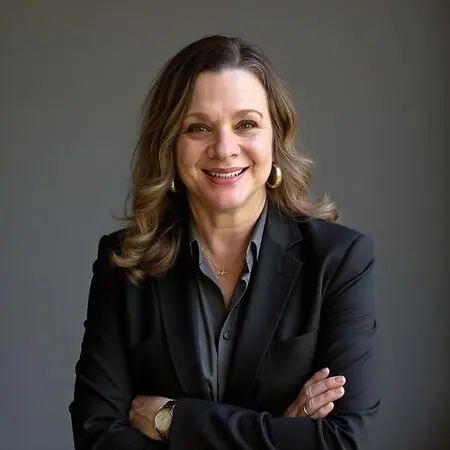Wendy Garner

Wendy Garner, MS is the Senior Manager of Community Connections at Dallas College, where she brings over eight years of progressive experience in program development, stakeholder engagement, and community impact. Drawing from her background in Industrial and Organizational Psychology, Wendy leads initiatives that enhance student well-being, foster academic-community partnerships, and create sustainable, student-centered solutions. Under her leadership, Dallas College has expanded access to essential resources through the launch of multiple campus food pantries and impactful workforce collaborations.
Wendy’s work is rooted in inclusive program design and data-informed decision-making. She has successfully led the implementation of high-impact initiatives such as the Volunteer Income Tax Assistance (VITA) program and the Poverty Simulation experience, which not only support student development but also engage local communities in meaningful ways. Her ability to bring together nonprofits, academic departments, and local agencies has positioned her as a collaborative force driving equity and access within the Dallas-Fort Worth education ecosystem.
A passionate advocate for systemic change, Wendy continues to mentor teams, support cross-functional training, and elevate community engagement across Dallas College’s campuses. Her strategic approach, combined with a deep commitment to service, empowers students while strengthening the college’s role as a community anchor. With a master’s degree from Walden University and a record of innovation, Wendy remains dedicated to building programs that transform lives and create lasting impact.
• Associate Professional in Human Resources
• Project Management Simplified
• Walden University
• Dallas Baptist University
• Presenting “Collaborative Success: Dallas College and Sharing Life’s Impact on the VITA Program” at the VITA U Conference
• Presented at Dallas College Community Relations and Solutions Showcase
• Dallas College Community Emergency Response Team
• The National Society of Leadership and Success (NSLS)
• Conference Assistant to the Chair at TX-TRIO
• DFW Alliance for TRIO Programs
What do you attribute your success to?
I attribute my success to perseverance and a strong sense of purpose. After a 10-year career in the mortgage industry, I transitioned into education in 2011, starting as a volunteer teacher. When my previous company closed, it motivated me to return to school and pursue a new path aligned with my passion for service. Since entering higher education in 2017, I’ve grown into a leadership role where I manage programming, personnel matters, and community partnerships. I currently oversee a Volunteer Income Tax Assistance (VITA) program, now in its third year, and collaborate closely with internal teams and nonprofit partners to drive impactful community outreach and program development. Each step of my journey has been shaped by resilience and a commitment to making a meaningful difference.
What’s the best career advice you’ve ever received?
The best career advice I’ve ever received is: don’t give up on your dreams. That simple guidance has stayed with me through every transition and challenge. Perseverance has been essential—especially during moments of uncertainty or when shifting into new roles. Staying focused on my goals, even when the path wasn’t clear, has helped me grow personally and professionally.
What advice would you give to young women entering your industry?
My advice to young women entering this field is to leverage your network—opportunities often come through connections, and having a strong support system makes a big difference. Seek out mentors who can offer guidance and perspective as you navigate your path. Internships or hands-on experience are also incredibly valuable in helping you build confidence and skills.
Most importantly, stay open-minded. Career paths aren’t always linear. I started with a degree in psychology, not knowing it would lead me to a role in community engagement and higher education—but that background has become one of my greatest assets. Embrace the twists and turns, trust the journey, and stay committed to your goals.
What are the biggest challenges or opportunities in your field right now?
One of the biggest challenges in higher education today is navigating funding changes tied to shifting government leadership and policy. These changes can directly impact program sustainability and student support services. At the same time, there's a growing need to engage adult learners and promote continuing education pathways, especially through certificate programs.
The opportunity lies in making these programs more visible and accessible. Many working adults are looking to reskill or upskill, but they often aren’t aware of what’s available to them. By improving outreach and building stronger community and workforce partnerships, we can better align educational offerings with real-world needs—and expand access for a broader range of learners.
What values are most important to you in your work and personal life?
The values that ground both my personal and professional life are integrity, accountability, hope, and faith. I believe in doing what’s right—even when no one is watching—and holding myself accountable to the commitments I make. Integrity and accountability build trust, which is essential in the work I do with community partners and colleagues.
Hope and faith keep me motivated, especially during challenging times. They remind me that meaningful progress is always possible and that every setback holds the potential for growth. These values guide how I lead, collaborate, and show up for others in every space I occupy.